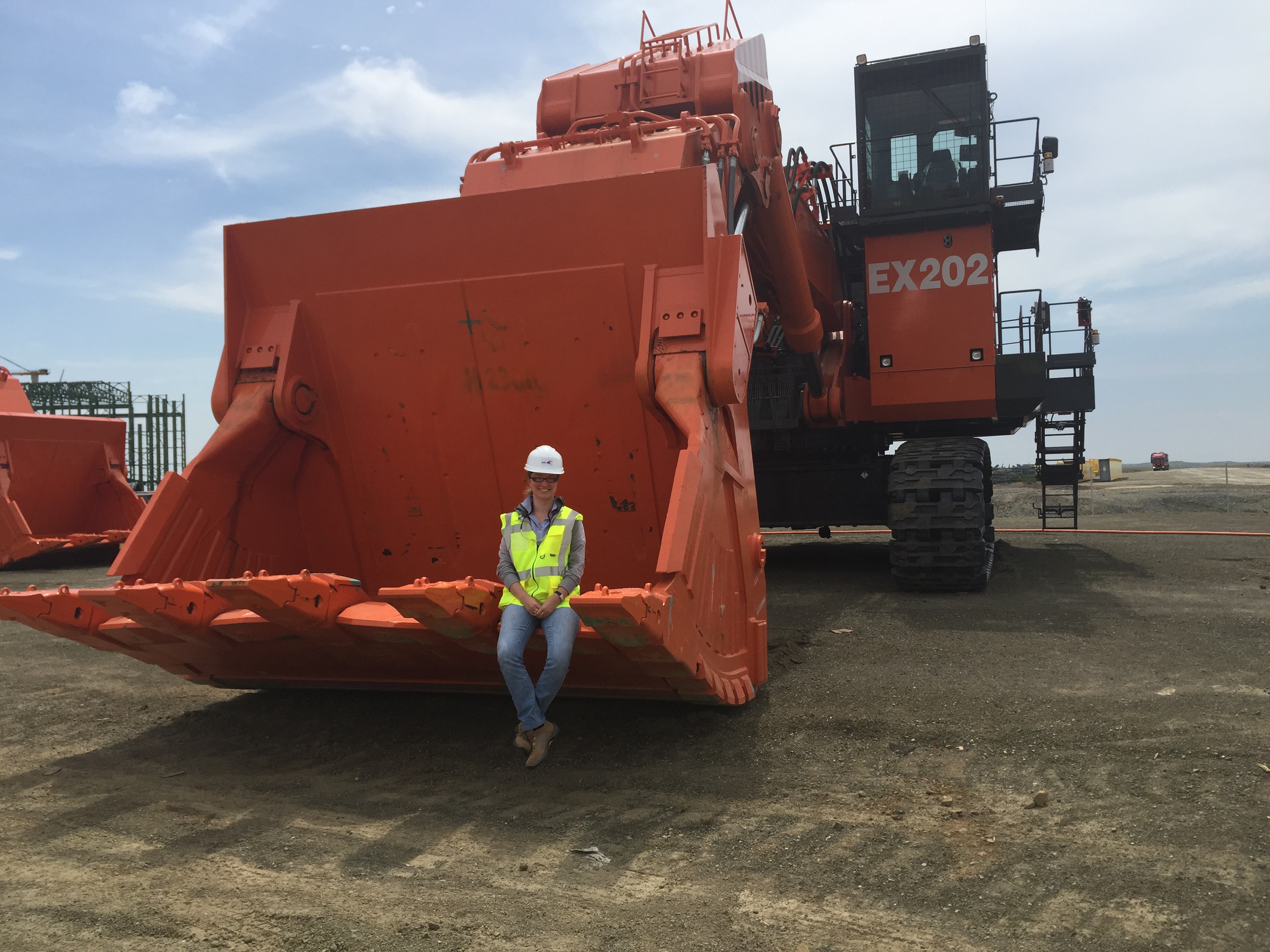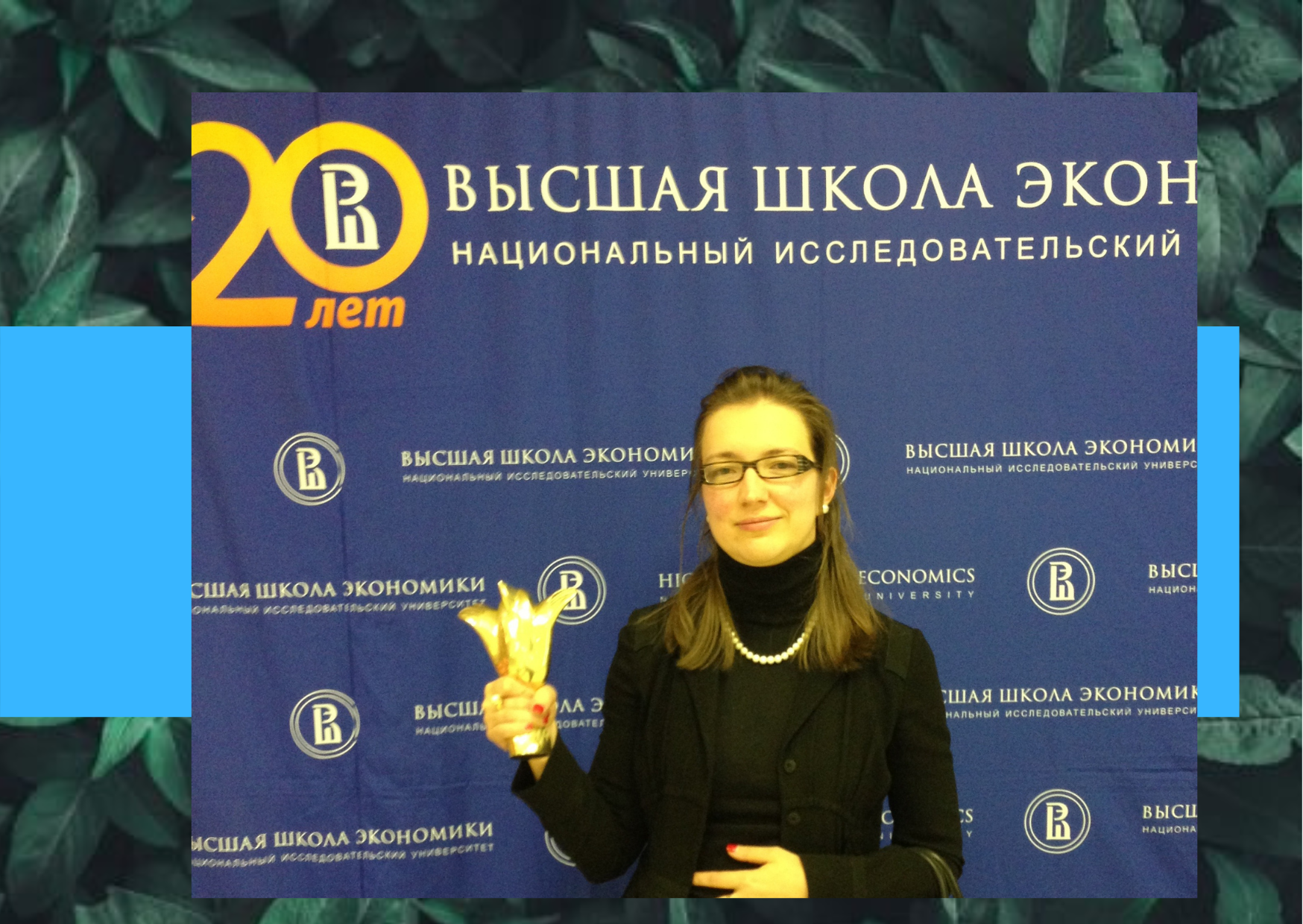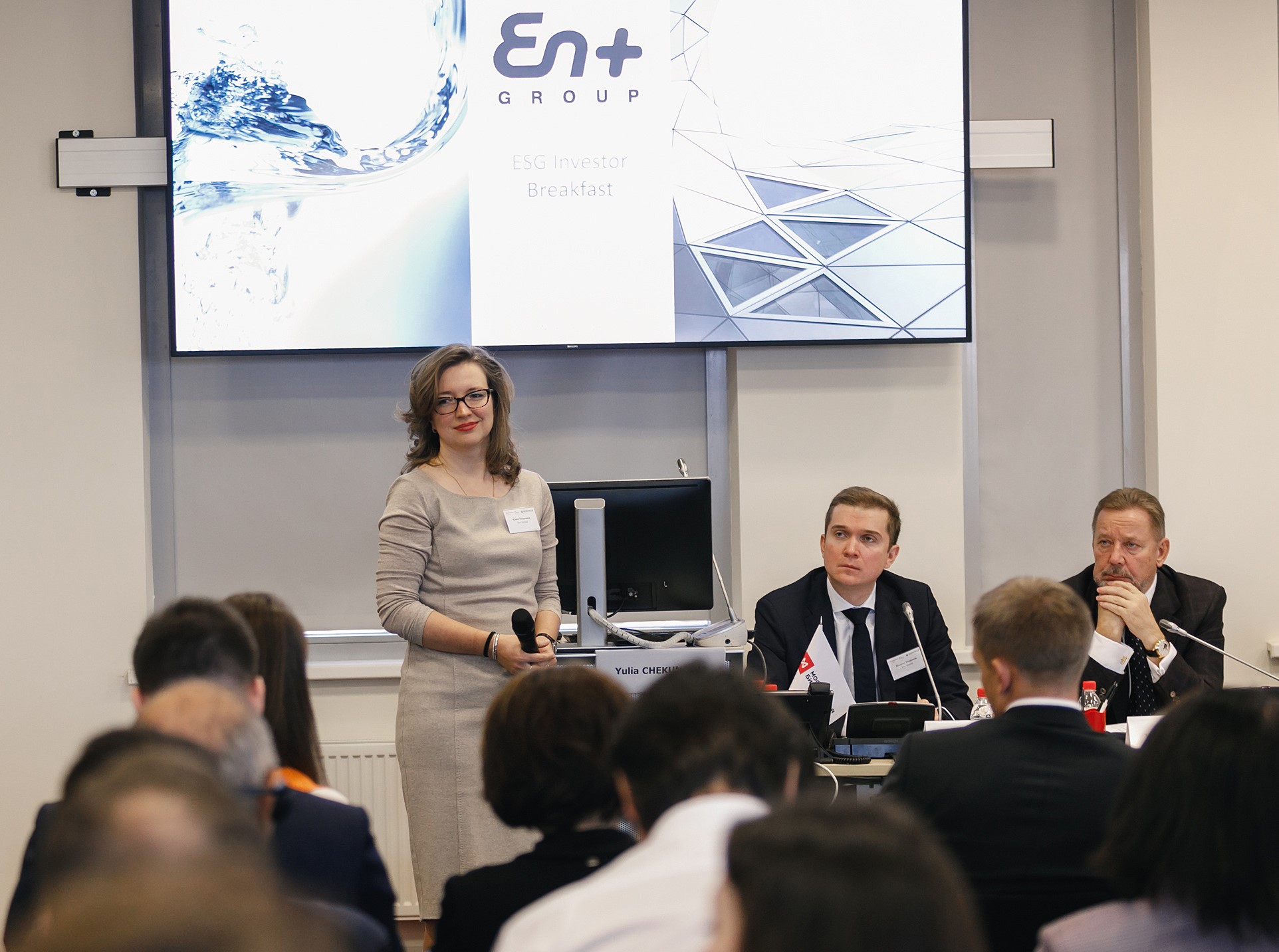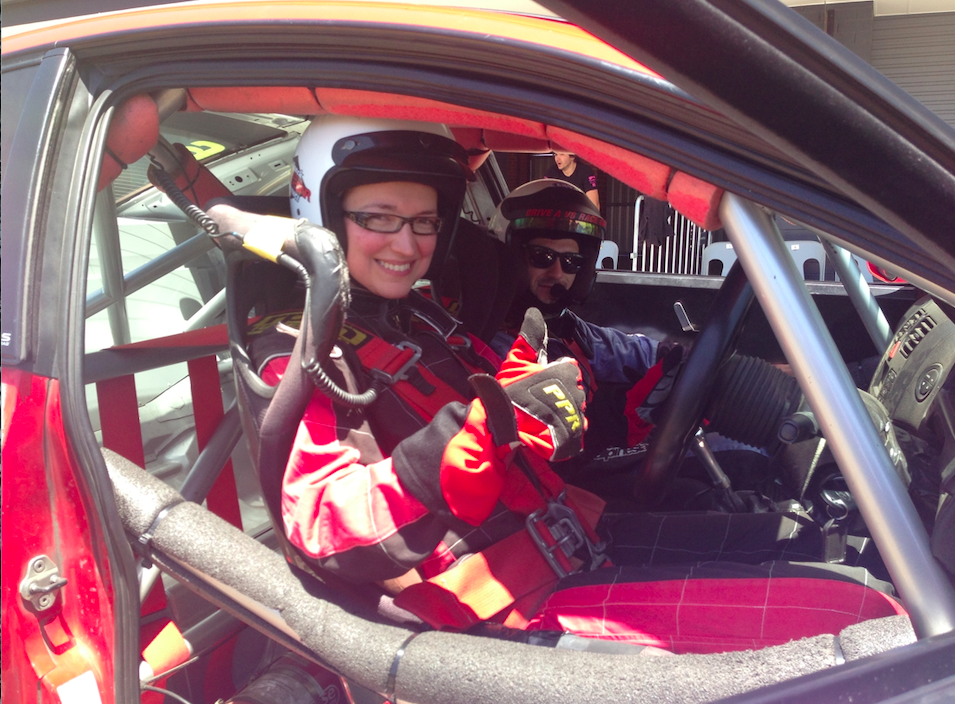'University molds our personalities. Its role is not merely to teach us model building'
.png)
Yulia Chekunaeva graduated in one of ICEF’s first classes in 2003. She chose to do her master’s at the University of Warwick and then worked at Sberbank and Goldman Sachs. Yulia is currently Director for Capital Markets & Strategic Initiatives and a Board member at En+ Group, the world’s leading producer of low-carbon aluminum and renewable energy. In this interview, she tells about her student years in London and the USA, her passion for racing, and how new social values are re-shaping the business environment.
How my mom discovered ICEF for me
It was my mom who learned about the programme. She literally saw ICEF being presented on Chistoprudny Boulevard and she talked to Oleg Zamkov. ICEF’s programme was ground-breaking – a thing like double-degree programme in Economics didn’t exist in Moscow back then – and it led my parents to set me on the path of innovation. I was more than willing to experiment. Fresh ideas, bold thinking are still what gets me excited. Risk was the last thing I thought about. What I did think about was the opportunity to get two degrees instead of one and English as the language of instruction, which meant a multitude of career paths in Russia and abroad. I know now, after twenty years, my choice was a good one.
Before enrolling in ICEF, I went to a school with advanced course in French and was studying for a second GCSE at the Russian-British School. Given my experience of dual, Russian-British education, ICEF seemed a perfect place to continue my studies at. We applied for admission and sent my British certificates to the University of London. The Admissions found my qualifications meeting the requirements and enrolled me in the double-degree programme.
How I studied in England
Fresh out of ICEF, I went to work for Sberbank hoping I would be able to continue studying financial markets. I was especially interested in derivatives evaluation. In my fourth year as a student, I applied to all British universities with programmes in banking and finance. The whole idea of studying in England revolved around banking and financial markets. London is the world’s financial hub. It would be illogical to study finance elsewhere. Besides, I have been familiar with the UK since my school days.

Why I finally chose the University of Warwick? I always seek advice from people I respect before making a decision. I turn not only to professionals but also friends and relatives. The thing was that I received acceptance letters from all the schools I applied in Britain. It was professor Rosie Gosling of the London School of Economics who helped me arrive at the decision.
Of all the universities I was accepted by, Warwick was, and it still is, one of the most reputable emerging universities in the UK. It turned only 55 in 2020. It boasts a modern campus, cutting-edge teaching strategy, and a staff of young professors. Warwick is in many ways like HSE. London can wait, I thought to myself. What was more, there were courses on Warwick’s curriculum that I found particularly useful for my specialization, one being financial analysis.
At Warwick, I proved to be one of the best-trained students in the programme. That I didn’t graduate with honours was due to my vibrant social life
The knowledge background I received at ICEF had proved more than sufficient. The majority of textbooks for my master’s courses in mathematics, econometrics and microeconomics, I had read them while at ICEF. I felt quite comfortable being an international student in a new environment. My being well-trained for the courses had earned me time to explore the culture and get some useful connections.
Why Econometrics is just part of the story
Many university students tend to have a very little understanding of where their knowledge can come in handy. And many tend to ignore the wide range of electives available to them. But take it from me, your electives are as important as your core courses. One course we had along with such mandatory hands-on courses as Corporate Finance and Risk Management, was Social Studies, which benefits one’s reasoning immensely, shedding more light on human behavior and society at large. I took great pleasure in learning this course and I realize now how valuable it is for career success. University molds our personalities. Its role is not merely to teach us model building. I think it’s wise to be using every chance to improve soft skills while an undergraduate.
In 2013, at Golden HSE award ceremony, Sergey Yakovlev and Oleg Zamkov described me as “that very student who asked the largest number of questions.” Curiosity and desire to get to the core of the matter can make us capable of tackling the biggest of challenges. Not to underrate the scholastic part of the programme, there is a university experience that is meant to teach us to “keep searching for the truth”. No matter the workplace you enter, your critical thinking skills and ability to ask questions will be a great help and can give you the green light for career success.
How energy sector became part of my life
By the time I entered Warwick, I already had one year of experience at Sberbank. I let my employer know from the start that I was going to study for a one-year master’s degree in Great Britain after ICEF and they supported my decision. I even had a few months of my leave paid. It was a job-protected leave. I absolutely liked my job at Sberbank and I knew my performance was being appreciated by my colleagues. Sberbank had by that time earned a reputation as a promising corporation. My duties there dealt with what seemed to be the most challenging of debt instruments – financing of fuel-and-energy (oil and gas) and metallurgy projects. I was a part of an all-star team. It was at Sberbank that I got my first experience of dealing with the heavy industries and, particularly, energy sector.

I combined my core duties in project financing with managing of international projects. One of those project sought to promote multi-faceted transformation of Sberbank and was started under the leadership of Herman Gref. Together with high level of education, my innate curiosity as to “ways to streamline processes and make them more efficient” have been a great help in working out ways to turn Sberbank into a better performing corporation.
I enjoyed my every day at Sberbank until 2010. What I gained was the invaluable experience of interacting with big businesses, and many of my colleagues became my close friends. I returned to London after accepting the offer from Goldman Sachs – this time with years of managerial experience to bring to my role as Vice-President Metals and Mining EMEA Global Investment Research.
What makes lifelong learning a beneficial undertaking
An accomplished professional that I am today, I perceive learning as a lifelong process. In 2021, I applied Harvard Business School and completed its Advanced Management Program (AMP). Five years earlier, when I was moving from my job at Goldman Sachs to that at En+ Group, I did a course in entrepreneurship at the London School of Economics. Not because I wanted to start my own business, but to explore how entrepreneurial initiatives work.
My ambition was to learn about what was happening outside of my professional field. I was completely new to concepts such as startup and UX/UI design (Note: UX/UI stands for user experience/user interface. UX/UI design is about identifying and solving user problems and creating aesthetically pleasing interfaces). I was curious to learn also programming skills, while my UX/UI designer skills have later proved useful when building teams and interacting with demanding contracting agents. What I learned in the first place was that in every communication process there is a “user” and that once you become aware of the user’s needs, you are more likely to achieve the best result for your company.

I joined En+ Group, the world’s largest low-carbon aluminum and renewable energy generator, and its office in London in September 2016. Already in 2017, we successfully completed the largest Russian IPO priced at one and a half billion dollars. The subsequent year promised to yield more fruitful deals, but sanctions were imposed, and I was put on the team responsible for corporate restructuring designed to get us off the sanctions list. It wasn’t until 2019 that we were finally delisted. That highly intense time has given my leadership qualities an incredible boost – I felt I wanted to take them to the next level.
Soon after that IPO, I went to Harvard for a short-term course. I really liked it and I decided to enter Harvard’s AMP programme, which was a serious step to take, given its highly demanding nature: it does take some effort to stay concentrated for months on end, trying to figure out why certain situations drive you, as a business leader, to act precisely the way you do, while at the same time solving real-life business cases for some 80 global corporations as part of the world-famous HBS Case Studies.
My nine months at Harvard have proved highly productive. They mobilized my intellectual resources and enriched my expertise.
You complete AMP with a renewed sense of self and professional identity, rediscovering your own integrity
Harvard’s Advanced Management Program is intended for top managers. My class consisted of 92 officers, aged between 40 and 45, representing the world’s largest corporations in 37 countries. When you study together with people with unique leadership skills, human qualities, ethics, and life philosophy, your professional network grows dramatically, providing fertile ground for experience exchange, private ventures and joint projects.
What is ESG and why it’s trending
My current position at En+ Group is Director for Capital Markets & Strategic Initiatives. En+ Group is the world's largest vertically integrated aluminum producer outside of China and the biggest independent electric energy generator. It has a controlling stake in RUSAL. My professional focus allows me to work mostly from En+ Group’s office in London.
As a company whose core business deals directly with the production of renewable energy and low-carbon aluminum, we put a lot of focus on ESG (Note: Environmental, Social, and (Corporate) Governance is a set of standards that companies embed into their business strategies for a sustainable tomorrow) and are conducting a number of major international campaigns to promote sustainable development and greater transparency within the aluminum industry globally. We team up with global industry associations to develop standards for low-carbon aluminum production.
I first started to explore the concept of ESG in 2011 at Goldman Sachs, when I was looking into the issues of sustainable development in terms of the criteria and metrics for evaluating public companies’ shares on the emerging markets. Now, almost ten years later, I see the change in business paradigms and patterns of human behavior. The humanity is stepping away from consumer economy towards sustainable development.
Today’s university students have been able to shift their priorities - they no longer dream to earn enough to buy themselves luxury cars
Instead, they want jobs that would make them feel proud and satisfied with what they do. It is important for people to know they are a part of something which is socially significant, big and useful in a global sense. Besides, the humanity is facing the global challenge of climate change, leading the young people in many countries to engage in public dialogue with their governments towards better agendas for mitigating the consequences that can be truly horrendous. The global rise in disease outbreaks, the current heat waves in Moscow and other regions of the world are all signs that irreversible processes are already happening.
One of the key tools in use by governments towards mitigating the effects of climate change is the decisions causing the industries to reduce their greenhouse gas emissions. No less important are clean energy projects, pollutant trapping mechanisms and the “polluter pays” principle. Changes in the corporate sector happen in response to actions taken by the regulators. At the same time, any policy implementation process should be followed up on, causing a need for verifiable criteria and methods for evaluating ESG factors. What earlier was perceived as a “scientific” research is now an effective performance ranking toolkit.

To give one example, three years ago the financial market regulators in Europe and the UK introduced a criterion requiring all financial institutions to disclose carbon emissions associated with their investment portfolios. The financial institutions, in turn, require emitters to be transparent. For a company to be issued a loan, it now needs to disclose its harmful emission figures. As a result, companies with lower emissions and higher ESG rating stand a better chance of being funded on preferential terms. Today’s society demands that financing parties hold their beneficiaries by the hand and see to it that their business processes are aimed to promote sustainable development.
The changes of this sort are taking place across the globe. With ESG as an element of comprehensive sustainable development system, the sustainable development itself is seen as a tool towards a new system of values, not merely a trend. No one can now afford to remain indifferent to the global challenges.
If we all make an effort and stop buying plastic bottled water, if we give up fast shopping and start waste sorting, we’ll be able to speed up the implementation of ESG standards and more sustainable business models.
Your hobby can make your career more successful
I’m a big fan of cars and have more than 15 years of experience as a racer. It seems as if I already had a racing license in a past life. I have been following Formula 1 since I was a child. After I graduated from Warwick and achieved income security, I was able to devote myself to speed. I bought a BMW and trained to be a racing driver in Russia and Germany’s Porsche Academy. Got a professional license and teamed up with car enthusiasts for a racing team. After moving to England in 2014, however, my passion for racing had to be put on hold: obtaining a racing license here is a real challenge and I haven’t really found the time for that.
Every time I look at my car, I smile and feel a little sad inside because I know I’d have to say good-bye to it one day. I am ready to go electric. I follow the new Formula E and Extreme E championship (Note: international racing series that use electric cars) with great attention and am a great supporter of eco-friendly motorsport. Formula 1 itself does not stand still and has recently announced its plan to become carbon neutral. I’ll be following its progress. I am very curious to see the world progress towards sustainable fuels. From next year, at least 10% of Formula 1 fuel will be bio-fuel!
I think it is vitally important to be able to get fun out of life and experience healthy exaltation from time to time as what can have a hugely positive impact on what we do professionally.
Staying active is my life principle. I’m the type that generates ideas and gets them supported by others
Your passions, and especially those of them that can inspire others, can expand your worldview. Most of the interesting people I met in my life, I met them at races, and meeting them has opened up some new perspectives for me. I believe that the diversity of views can lead to better results. Whenever I have to make a tough decision, I first discuss it with others. I am deeply convinced that diversity has an essential role to play also in business. If your hobby involves meeting new people, make the most of it by hearing different points of view to get fresh perspectives and level up your mindset.